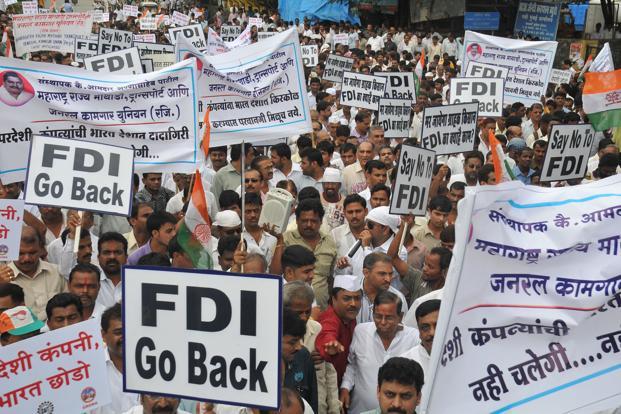By Ipshita Agarwal
The public loves him; the incumbent Government, well, supports him; the media follows him; but do the investors love him too? Yes, it’s Arvind Kejriwal we’re talking about, of course! Having gathered unprecedented public sentiment in its favor, is the AAP going to witness a similar support on the investors’ front?
Investor sentiment has not taken very nicely to the phenomenon called AAP, thanks to the price cuts, subsidies and freebies it introduced. To add to that, the ban on Foreign Direct Investment i.e. retail FDI in the capital city has left many skeptical. While the AAP claims that it is not against FDI in general and will evaluate all deals on a case-to-case basis, what message is this conveying to investors and others, all across the world?
When the Centre approved retail FDI, certain market players like Wal-Mart knew that they had to be cautious about it. General Elections 2014 were round the corner, and a decision like this, would, in all probability, meet opposition and revolt. And right they were! The AAP claims, that by banning FDI, it has shown its commitment to party manifesto. But this decision has brought to the fore, the cracked and shallow Indian economic system, highlighting the extent to which it can be bent to match political whims and fancies!
While controlling rising unemployment forms the basis of Mr. Kejriwal’s decision; economists, industrialists, foreign investors are extremely apprehensive of this move. They highlight the fact that such unstable and reversal of major policies upon change of guards will increase the policy and political risks for global investors in India, scaring them away.
(the Indian government’s move to introduce FDI in retail met with negative feedback from “aam aadmi” throughout the country in 2012)
Following in Delhi’s footsteps, is Rajasthan. Very recently, Rajasthan too, upon change of government, has banned retail FDI in the state. This comes as a blow to foreign players like Tesco, looking to setup shop in India. With 2 of the 12 states that had initially allowed FDI not in the fray, the economy seems to have taken a downturn. Investor sentiment is weak, and economists predict further withdrawal of foreign capital. It just highlights the instability that politics brings to economic policies in the country.
While AAP has begun solving the “aam aadmi’s” quintessential ‘bijli-paani’ problems, is it experienced and mature enough to understand the implications and repercussions of this move? This, against the backdrop of a year of one of the slowest economic growth in Indian history? As political parties get ready to battle it out, we can only hope for stability in policies and a boost in investor sentiment in the coming year!





































